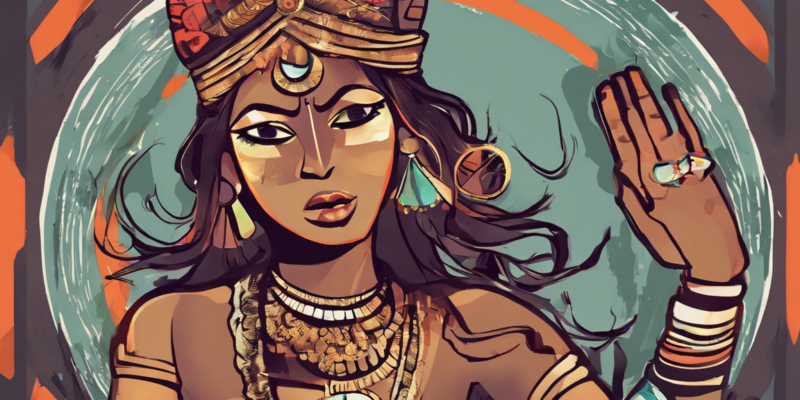Introduction
In the vast tapestry of Indian history, there have been numerous individuals whose contributions have shaped the course of the nation’s journey. Among these figures, one name stands out as a symbol of resistance, courage, and empowerment – Birsa Munda. Birsa Munda, a tribal hero from the state of Jharkhand, played a pivotal role in spearheading the tribal rights movement against British colonial rule in the late 19th century. His legacy continues to inspire generations of indigenous people across India.
Early Life and Background
Birsa Munda was born on November 15, 1875, in Ulihatu, a small tribal village in present-day Jharkhand. He belonged to the Munda tribe, one of the largest indigenous communities in the region. From a young age, Birsa showed remarkable leadership qualities and a deep sense of empathy towards his people who were facing oppression and exploitation under British colonial rule.
Rebellion Against British Rule
As the British East India Company expanded its influence in tribal territories, Birsa witnessed firsthand the injustices inflicted upon his community. The imposition of harsh land revenue policies, forced labor, and cultural subjugation fueled his resolve to resist the colonial oppressors. In 1899, Birsa led a massive rebellion known as the Ulgulan or “The Great Tumult” against British authorities. His call for tribal unity and the restoration of traditional customs struck a chord with thousands of oppressed tribesmen who joined his movement.
Key Contributions and Achievements
- Religious Revival: Birsa emphasized the revitalization of tribal faith and beliefs, urging his followers to reject the conversion efforts of missionaries and embrace their indigenous spirituality.
- Land Rights: He fought for the recognition of tribal land rights and the restoration of traditional land holdings that were unjustly usurped by colonial authorities.
- Cultural Identity: Birsa advocated for the preservation of tribal languages, customs, and traditions, recognizing the intrinsic link between cultural heritage and community empowerment.
Imprisonment and Martyrdom
The British colonial administration, alarmed by the growing influence of Birsa and his movement, arrested him in 1900 on false charges of inciting rebellion. Despite his incarceration, Birsa continued to inspire his followers with his resilience and unwavering commitment to the cause of tribal rights. Tragically, he passed away in prison on June 9, 1900, under mysterious circumstances. His death galvanized the tribal community and fueled their determination to carry forward his legacy of resistance and empowerment.
Legacy and Impact
Birsa Munda‘s legacy transcends his brief lifespan, resonating with indigenous communities not only in Jharkhand but across India. He symbolizes the indomitable spirit of tribal resistance against oppression and the enduring quest for social justice and equality. Today, numerous educational institutions, cultural centers, and organizations are dedicated to preserving and promoting the memory of this tribal hero.
Conclusion
In conclusion, Birsa Munda occupies a hallowed place in the pantheon of Indian freedom fighters, revered for his courage, vision, and sacrifice in the fight against colonial tyranny. His struggle for tribal rights and empowerment continues to serve as a beacon of inspiration for marginalized communities striving for dignity and self-determination. As we reflect on his remarkable journey, we are reminded of the enduring power of individuals to spark transformative change and challenge injustice, leaving an indelible mark on the pages of history.
FAQs about Birsa Munda:
Q1: Who was Birsa Munda?
A: Birsa Munda was a tribal hero from Jharkhand, India, who led a significant rebellion against British colonial rule in the late 19th century.
Q2: What does Ulgulan mean?
A: Ulgulan, also known as “The Great Tumult,” refers to the massive rebellion led by Birsa Munda against British authorities.
Q3: What were Birsa‘s key contributions?
A: Birsa fought for religious revival, land rights, and the preservation of tribal cultural identity.
Q4: How did Birsa inspire his followers?
A: Despite his imprisonment, Birsa inspired his followers with his resilience and unwavering commitment to the cause of tribal rights.
Q5: What is Birsa‘s legacy today?
A: Birsa Munda‘s legacy continues to inspire indigenous communities in India, serving as a symbol of resistance and empowerment.
Q6: When and where was Birsa born?
A: Birsa Munda was born on November 15, 1875, in Ulihatu, Jharkhand.
Q7: Why is Birsa considered a tribal hero?
A: Birsa is considered a tribal hero for his courage in leading the fight against colonial oppression and advocating for tribal rights.
Q8: How did Birsa‘s death impact the tribal community?
A: Birsa‘s death galvanized the tribal community and fueled their determination to carry forward his legacy of resistance and empowerment.
Q9: What were some of the injustices faced by tribal communities under British colonial rule?
A: Tribal communities faced harsh land revenue policies, forced labor, and cultural subjugation under British colonial rule.
Q10: How is Birsa Munda remembered today in India?
A: Birsa Munda is remembered through educational institutions, cultural centers, and organizations dedicated to preserving his memory and legacy.









